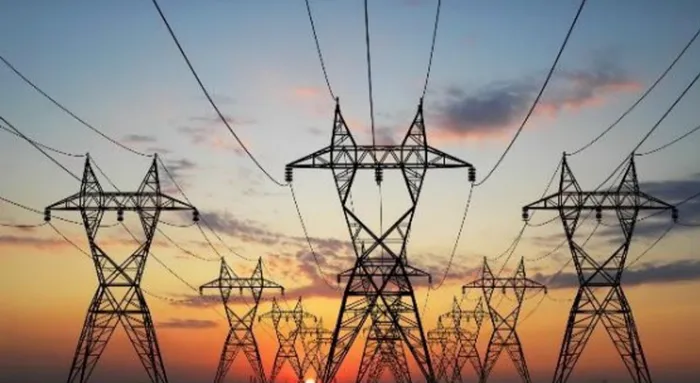Run on numbers: the impact of Nersa's regulatory failures on South Africa's energy crisis

Explore the complexities of South Africa's energy crisis, examining the regulatory failures of Nersa, the implications of rising electricity tariffs, and the urgent need for reform in the energy sector.
Image: File
According to Statistics South Africa, household income and expenditure are fundamental components of a country’s economic landscape, influencing everything from consumer behaviour and savings rates to economic growth and stability. On average, the estimated household consumption expenditure per household in South Africa was R143 691.
Households spent most of their income on housing, water, electricity, gas, and other fuels (34,7%), followed by food and non-alcoholic beverages (16,3%), transport (15,3%), and insurance and financial services (9,3%).
- An application for a market operator (MO) license was made to the National Energy Regulator of South Africa (Nersa) in terms of the Electricity Regulation Act, 2006 (Act no 4 of 2006) as amended. This licence will enable the MO to operate the systems that facilitate the trading of electricity or other energy commodities within a national energy market. The South African Wholesale Electricity Market (SAWEM) is a key component of the country’s energy reform strategy, designed to introduce competition, transparency, and efficiency into the electricity sector.
Nersa has regulatory authority over the competitive electricity market, including the SAWEM, in terms of section 3 of the Act. Nersa shall ensure that the Market Operator provides a transparent, non-discriminatory trading platform and provide oversight over the trading platform and the application of this Market Code.
2. Recently, the Democratic Alliance questioned Nersa's expertise to determine the electricity price after the announcement of their R54 billion blunder. The error will cost consumers when tariffs increase by more than 8% per year for the next two financial years, instead of the 5% originally agreed on.
As the Cape Argus reported, a simple recalculation of the tariff is not the answer to this unimaginable error. South African citizens refuse to accept that all is well at this institution. The error is a clear indication of carelessness, incompetence, and a total lack of internal checks and proper management.
Such serious mistakes are more often the result of structural inefficiency within an organisation. The heads that must roll should start at the top. Mantashe has appointed Advocate Nomalanga Petronella Sithole as CEO and full-time regulator member of Nersa. A comprehensive skills audit is urgently needed. The appointment of a legal expert in this instance must be questioned, as the blatant shortcoming at Nersa is that of a lack of accurate calculations based on meticulous financial and managerial oversight.
The head of this organisation should probably be better served by someone with a financial and or accounting background, such as a Chartered Accountant. Penn Program on Regulation conducted a study titled: “What Makes a Regulator Excellent? Mission, Funding, Information, and Judgment, which states: “Excellent regulators assemble and study information about the risks they seek to prevent and the conditions they hope to improve to inform risk-based priority setting". It is not clear that Nersa is on a path to stay ahead of the curve in our energy transition. The consumer can not be expected to foot the bill.
3. Eskom's chief financial officer, Calib Cassim, previously said that municipal debt owed to Eskom is on track to hit R200 billion in 2028 and is growing at an annual rate of R20 bn.
One does not need to be a Certified Credit Agency to conclude that the bulk of this debt is irrecoverable.
4. South Africa still lags behind most countries in adopting renewable energy in its energy mix.
One aspect that is at the root cause is the fact that we have a huge unemployment problem. Solar solutions require a capital investment that is above the income bracket of most of the population.
According to Eskom CEO Dan Marokane, around 8 million households in South Africa qualify for free basic electricity (FBE) but are not receiving it. This number translates to 28 million people, which, as a percentage of our total population, equates to 45% of the population. Free basic municipal services are services provided at no charge by the government to poor households. The services currently include water and electricity. The general rule is that indigent households are entitled to 6 kl of free water per household per month and 50 kWh of free electricity per household per month.
What can you power at home for 50 kWh in a month?
This amount of electricity will be sufficient to provide basic:
- 4 lightbulbs for 4 hours
- TV for 3 hours
- Iron for 10 minutes
- Cell phone charger for 24 hours
- Fridge for 20 minutes
5. SAWEM development is a step in the right direction. It does help protect the industry from the attempts by certain political parties to nationalise industries. Just as the Johannesburg Stock Exchange offers a great platform to ensure free market price discovery and liquidity for shareholders to trade freely, the SAWEM institution will bring similar benefits to the marketplace that has obviously failed in its present form, being a government-controlled State-owned entity. The poor will see little benefit from this development in the short term.
* Kruger is an independent analyst.
** The views expressed herein are not necessarily those of Personal Finance or Independent Newspapers.
PERSONAL FINANCE